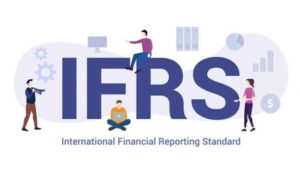Financial Analysis Training Course: A Hands-On Approach
Course Fee:
Course Objectives
The objective of this training is to help you in acquiring deep insights into why an organization is performing well and why it is not through a broad knowledge of financial skills and applying them to a multitude of situations and recommend for improvements that will enhance the organization’s overall financial performance.
By the end of this training you will learn to:
• Evaluate capital investments, financing options and cash flows
• Evaluate business operations, processes, managers and capacity utilisation
• Use the information provided in financial statements for analysing the financial performance
• Forecast future business conditions
Course Outline
Introduction to Financial Analysis
• Role of Financial Analysis
• Traditional Financial Analysis
• Modern Financial Analysis
Evaluating Capital Investments
• Hurdle rate
• Payback period
• Net present value
• Internal rate of return
• Cash flow modeling issues
Evaluating Financing Options
• Types of funding options
• Cost of funding options
• Risk associated with funding options
• Control problems associated with financing options
Evaluating Cash Flow
• Evaluating working capital
• Making a cash flow model for a capital investment
• Creating and evaluating a cash forecast
• Incremental cash flow analysis
• Interpreting variations in cash flow
Analyzing the business processes
• Analysis of product/service profitability
• Analysis of production function
• Analysis of sales function
• Analysis of marketing function
• Analysis of human resources
• Analysis of computer services
• Analysis of accounting & finance
• Analysis of outsourcing function
• Reporting results to the target departments
Preparation and Presentation of Financial Statements
• Complete Set of Financial Statements
• Financial Reporting Standards
• Balance Sheet
• Profit and Loss
• Cash Flow Statement
• Changes in Equity
• Accounting Policies and Notes
• Relationship among the Financial Statements
• Inherent Limitations of Financial Statements
Interpretation of Financial Statements
• Horizontal Analysis
• Vertical Analysis
• Liquidity Analysis
• Solvency Analysis
• Profitability Analysis
• Asset Management
Financial Forecasting
• Budgets vs Forecast
• Run Rate Concept
• Revenue Forecasting
• Forecasting cost of goods sold
• Forecasting fixed and variable costs
• Forecasting balance sheet accounts
Methodology
The training methodology integrates lectures, interactive discussions, collaborative group exercises, and illustrative examples. Participants will acquire a blend of theoretical insights and hands-on practical experience, emphasizing the application of learned techniques. This approach ensures that attendees return to their professional environments equipped with both the competence and self-assurance to effectively implement the acquired skills in their responsibilities.
DATE:
1ST BATCH: 13th – 16th Feb, 2024
2ND BATCH: 20th – 23rd Aug, 2024
Course Category
- Human Resource and Admin
- Finance and Accounting
- Internal Audit and Fraud Control
- Stores, Procurement and Supply Chain
- Information Technology
- Aviation and Maritime
- Banking, Investment and Insurance
- Business Communication
- Construction Management & Civil Engineering
- Engineering, Instrumentation and Maintenance
- Entrepreneurship and Business
- Hotel & Hospitality Management
- Law and Contract Management
- Management and Leadership
- Project Management
- Public Relations
- Public Sector
- Sales, Marketing & Customer Service
- Secretaries & Personal Assistants
- Transport & Logistics
- Security and Safety
More Courses
VENUE
25, Queen street, Alagomeji Bus Stop, Yaba, Lagos










